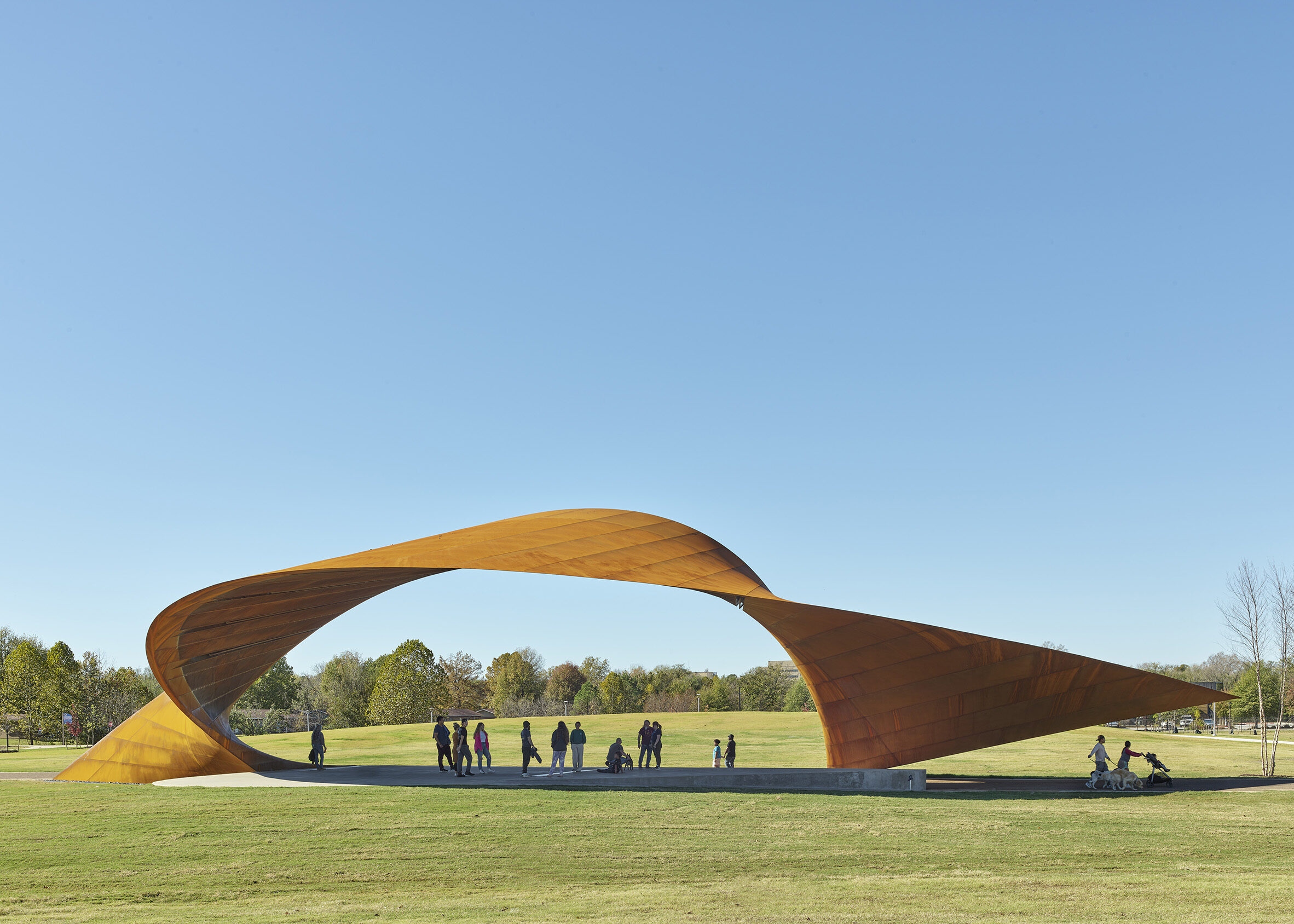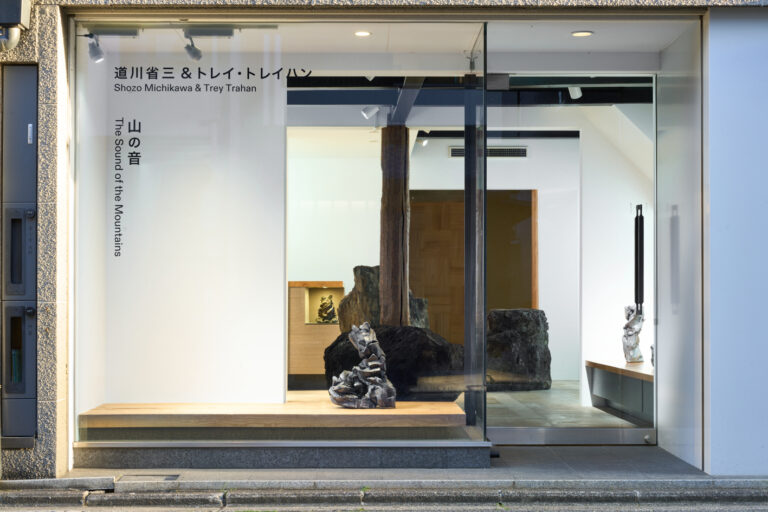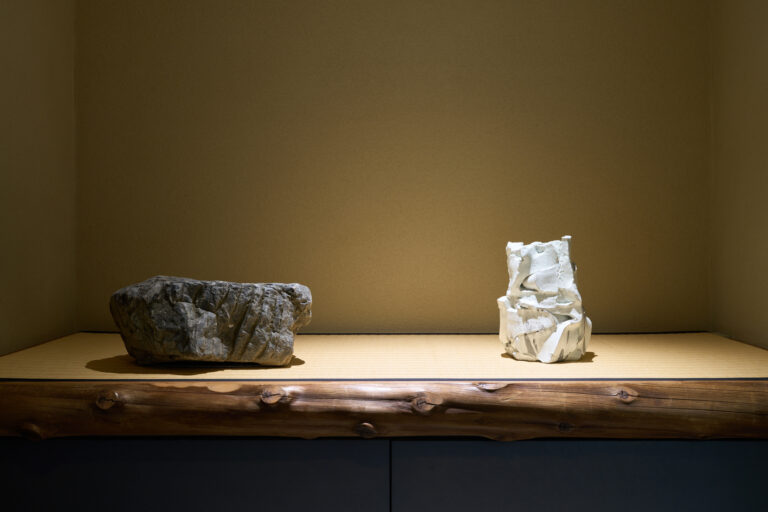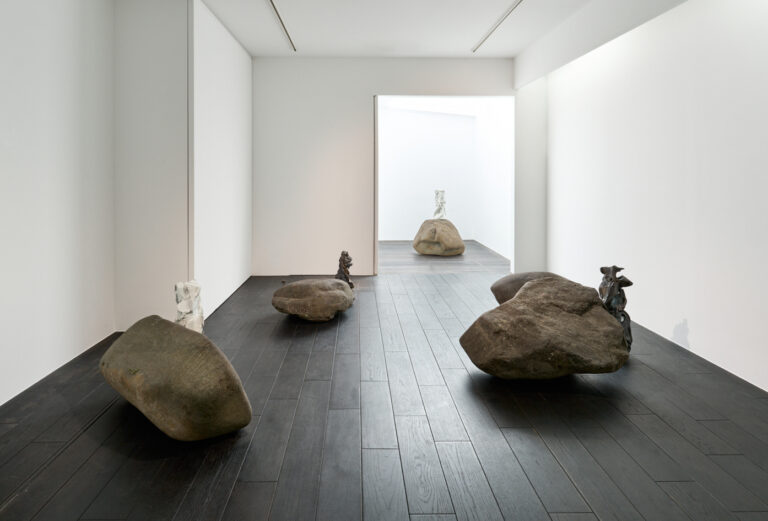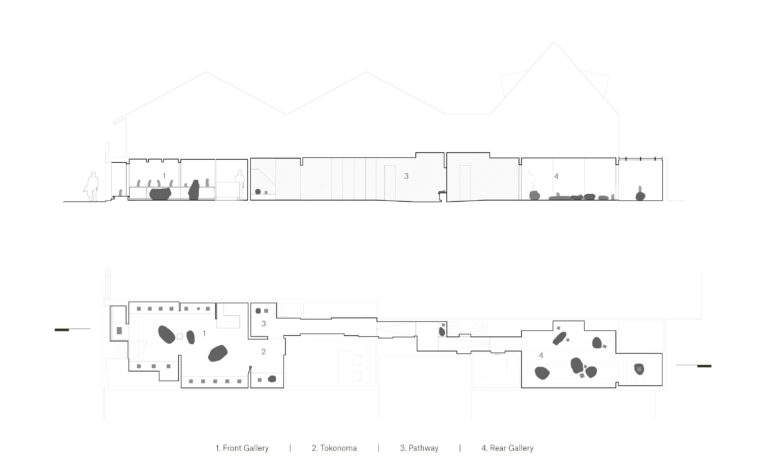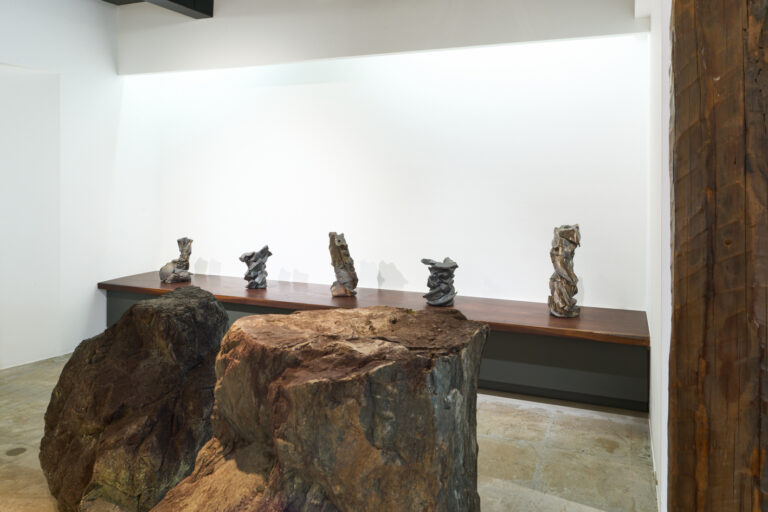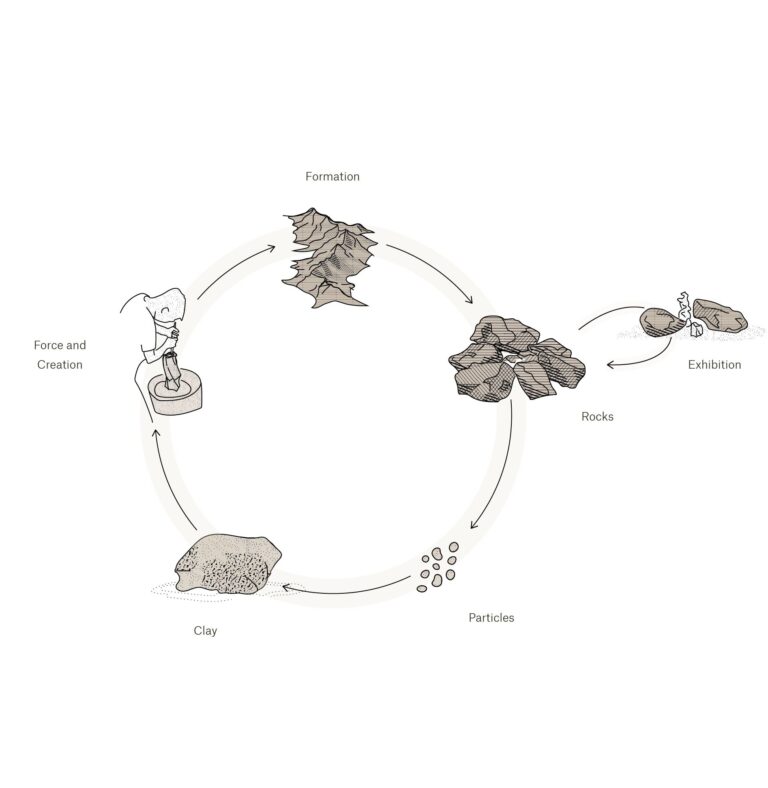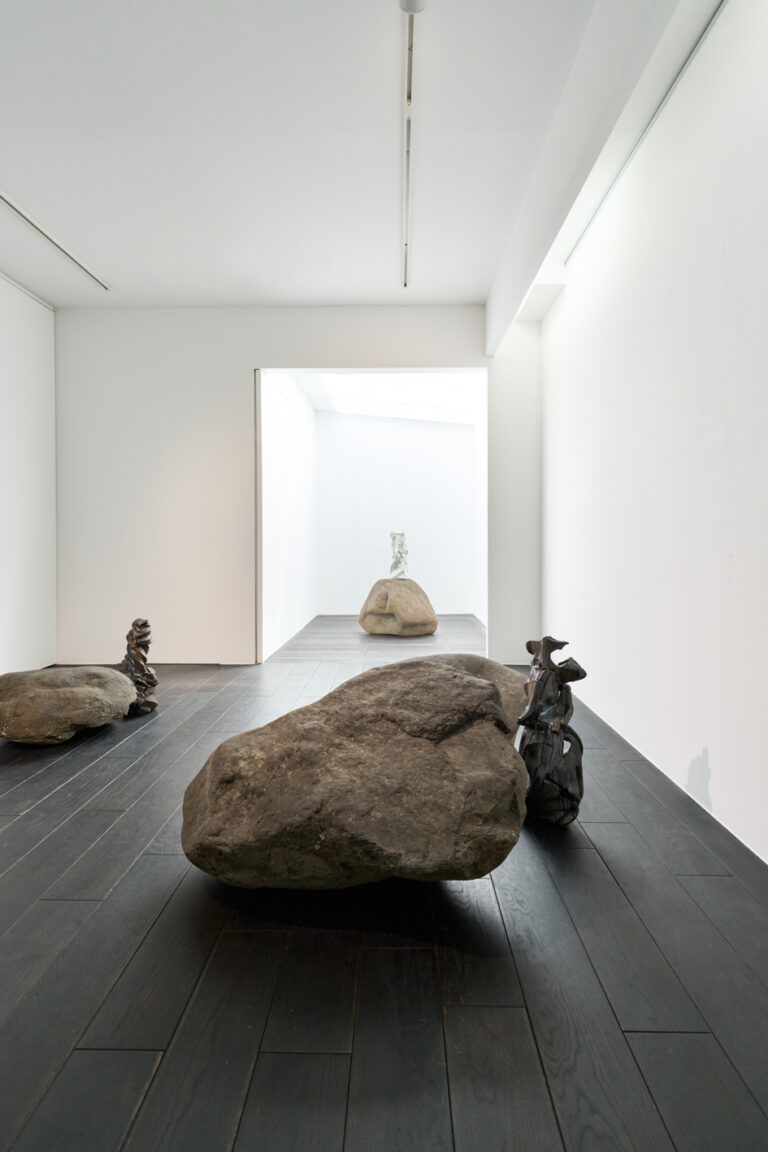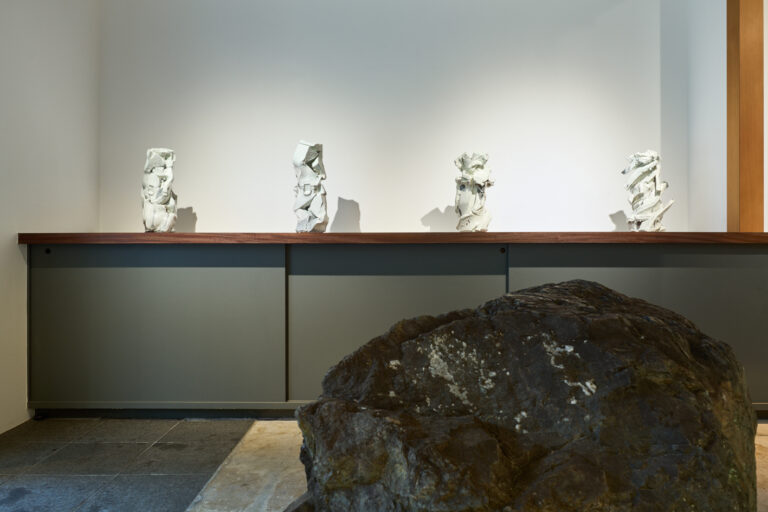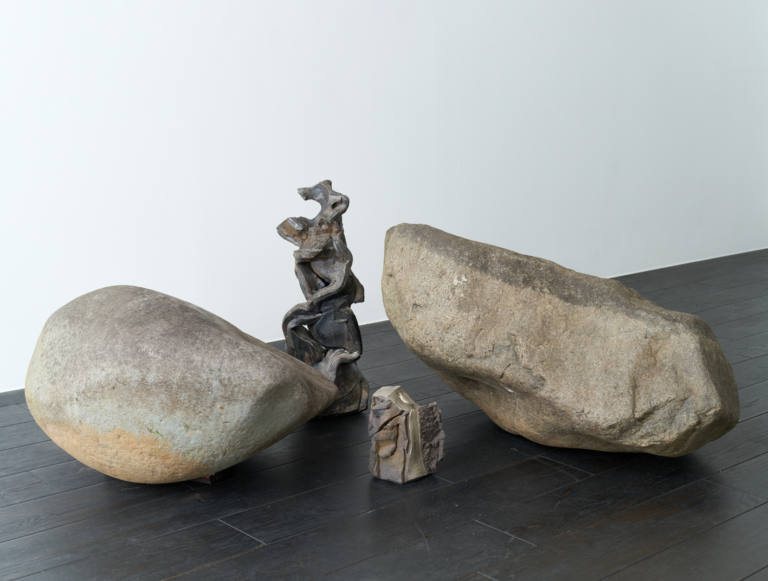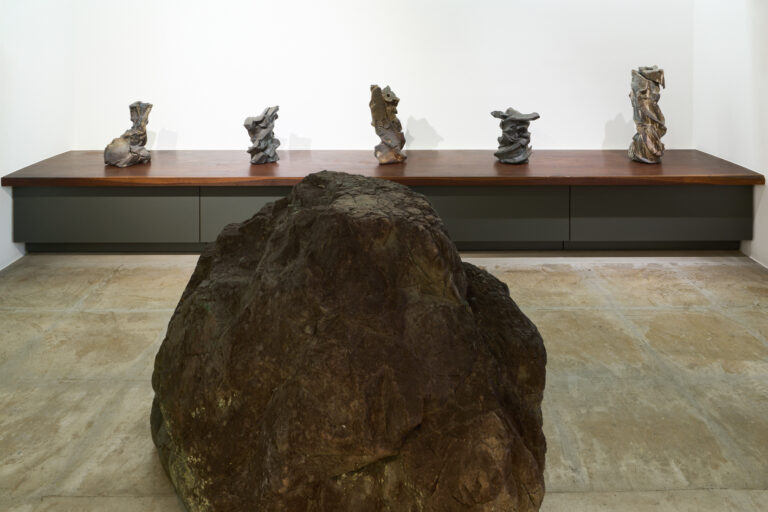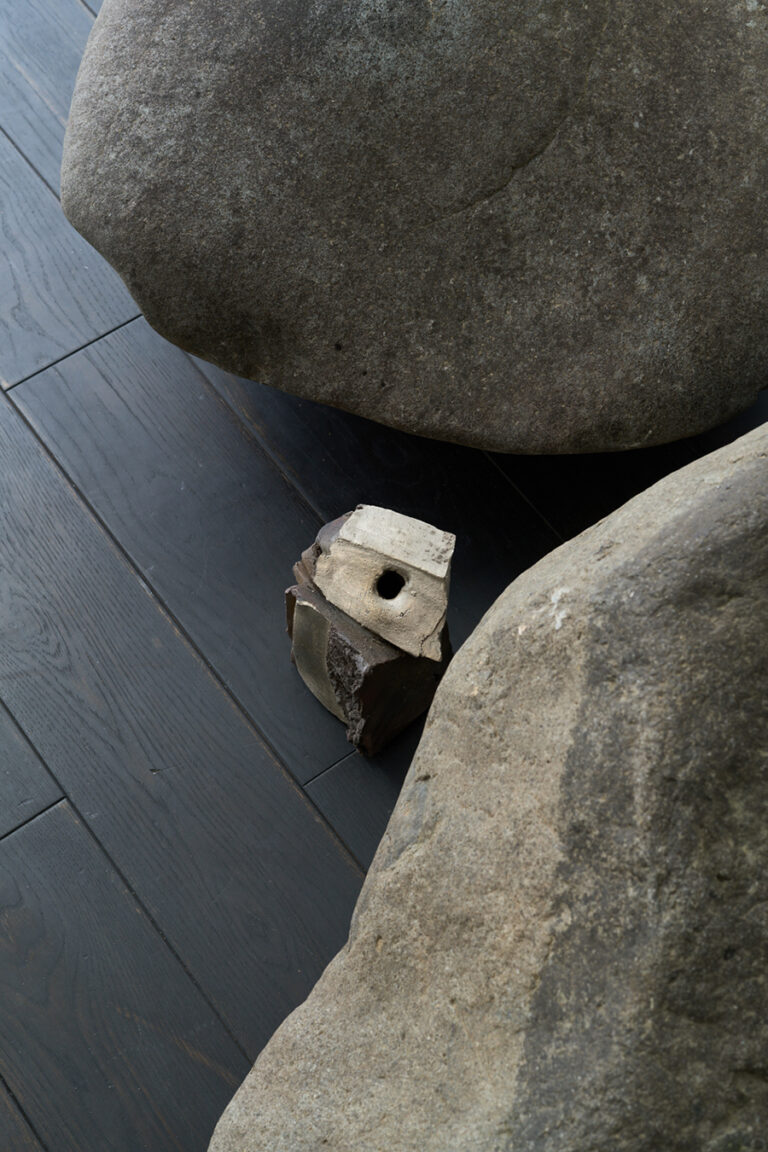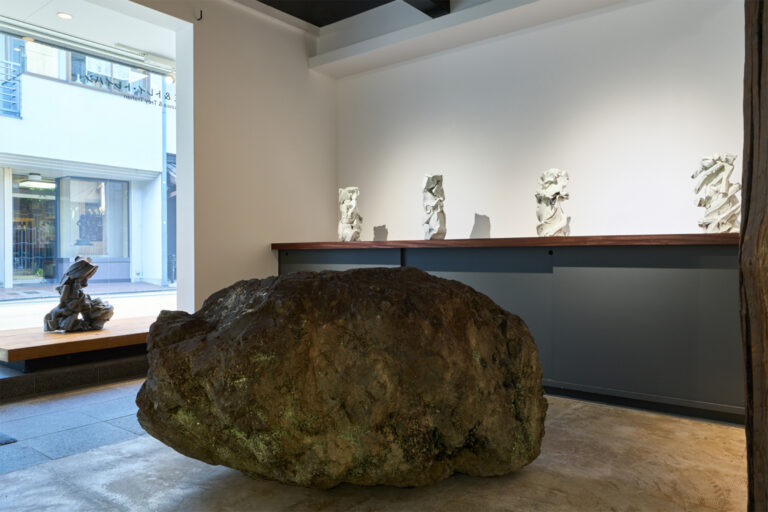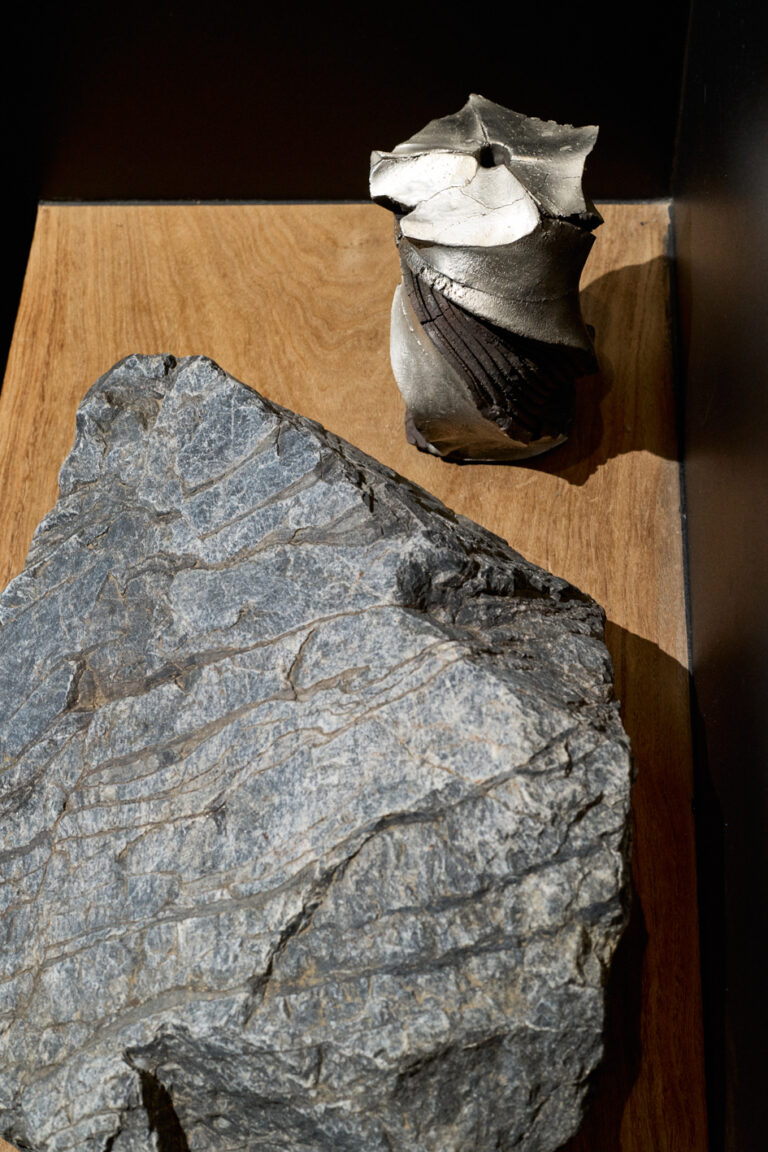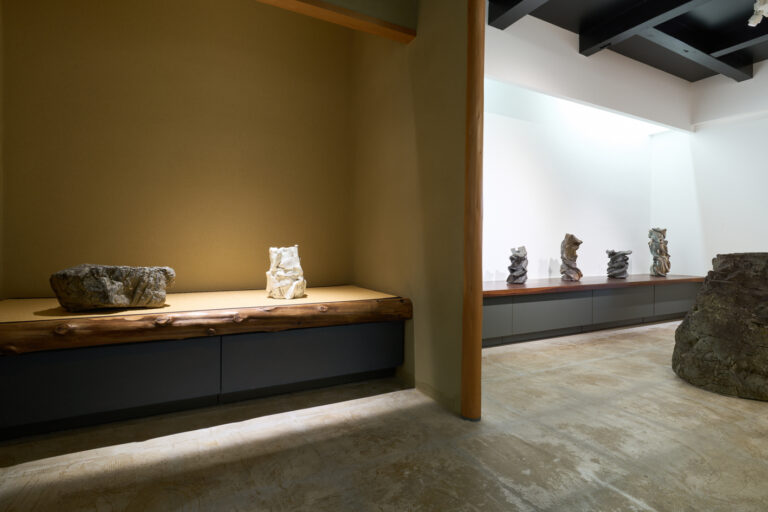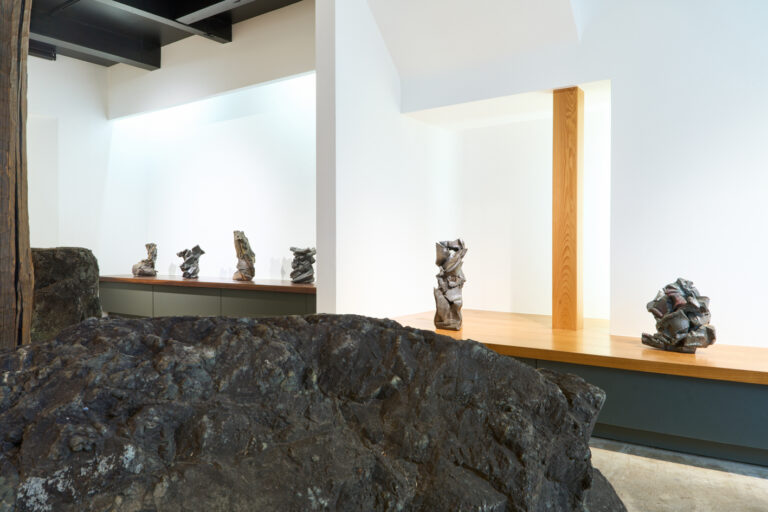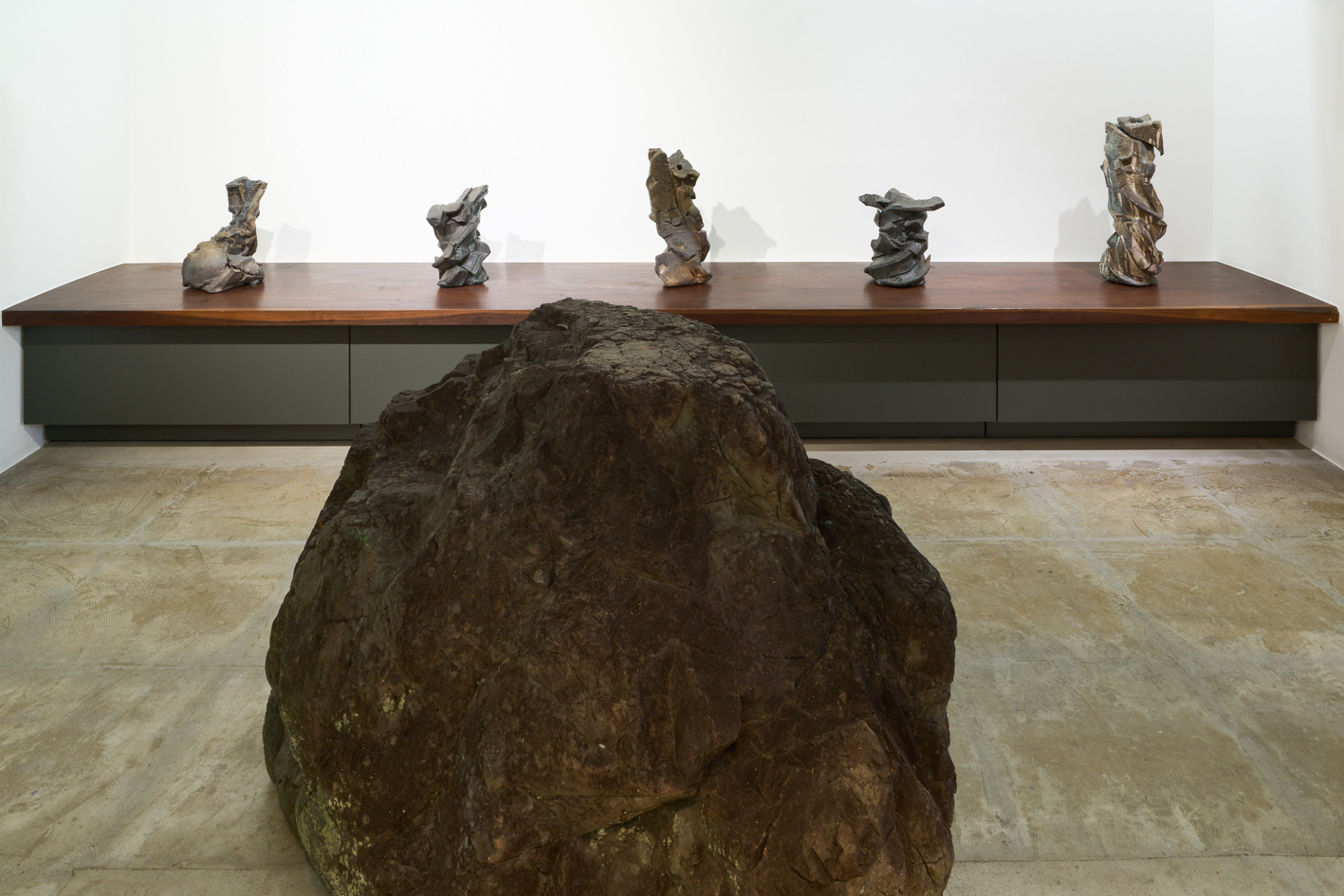
Shozo Michikawa and Trey Trahan “The Sound of the Mountains”
The Sound of the Mountains is a collaborative exhibition by ceramic artist Shozo Michikawa and Trey Trahan, exploring material integrity and shared sensibilities through a dialogue of sculptural ceramics and unaltered natural stone.
Rooted in a mutual reverence for soil, ecology, and impermanence, the work reflects the synergy of their origins—Michikawa’s dynamic forms echo the volcanic terrain of Hokkaido, while Trahan’s design ethos is informed by the soils of the Mississippi River delta in his native state, Louisiana.
Spanning four gallery spaces, the installation weaves a quiet narrative between nature and craft. The stones represent the cyclical symbology of Michikawa’s work – inspired by the sublimity of nature, eroded over time into fine grains of clay, and reborn as dynamic ceramic artworks. This subtle exchange of form and philosophy quietly mirrors the exhibition’s namesake—like the sound of the mountain.
Kyoto, Japan
Gallery
Sokyo Gallery
On View
April 26 – June 11, 2025
Size
29 Art Pieces
12 Stones
Project Team
Trey Trahan, Sandra Baggerman
Collaborators
Sokyo Gallery, Shozo Michikawa
Photography
Yuji Imamura, Courtesy Sokyo Gallery
This exhibition has been built upon the dialogue between Michikawa and Trahan about their shared value in approaching art and architecture with humility – allowing beauty to emerge through chance, perception and authenticity. For this exhibition, this is expressed through a poetic conversation between sculpture and stone.
“Shozo Michikawa’s creations teach us about the lifecycle of soil and stone in profound, beautiful ways. Born in the volcanic terrain of Hokkaido, where rock is formed; feeling and collecting the local stones during his daily hikes on Mount Sanageyama; forming the clay in his hands with a mix of tenderness and energy; it’s as if he’s an ambassador for the land.
When conceptualizing the exhibit, we wanted to express his work and biography by inviting nature into the gallery. As time passes, boulders turn into stones, stones turn into pebbles, and pebbles degrade to grains of clay. The work, in essence, is sculpted stone complementing and paying respect to its original form.”
Sokyo Gallery unfolds as a linear sequence of four distinct spaces: a front gallery, a tokonoma, a corridor, and a rear gallery. The exhibition uses carefully placed stones—Yaku-ishi, Tsuka-ishi, and Moriyama-ishi—to connect these spaces and evoke a deep relationship between space, nature, art and material. Together, the arrangement invites reflection on the life cycle of clay originating from stone, and reaffirms the presence of art within the natural world.
Central to the exhibition is the dialogue between Michikawa’s sculptures and natural stones, inspired by his daily hikes at Mount Sanageyama. Drawing from traditional Japanese practices like Karesansui and Suiseki, the installation honors the natural form and quiet expression of stones.
The stones are presented in their raw form, honoring their natural state. They are borrowed from nature for the duration of the show, with the intention of either returning them to their original landscape or offering them as a pair with their corresponding artwork. This dialogue reflects the life cycle of stone to soil. As the stone naturally deteriorates, it creates fine granules that mix with the soil, providing structural properties as clay. This material becomes the starting point for Michikawa’s dynamic expressions.
Trahan and Michikawa’s collaboration merged in a Kyoto stone garden, hand-picking stones that captured the right expression to elevate Michikawa’s ceramic work—mindful of the gallery’s spatial constraints and desired atmosphere. Each selected stone was 3D scanned to study its placement, scale, and material dialogue in detail. This process enabled a seamless transition from the authenticity of on-site selection in Kyoto to precise spatial modelling at Trahan’s New York and New Orleans offices, ensuring thoughtful composition, logistical coordination, and installation within the constraints of the gallery.
Michikawa approaches clay with profound sincerity, guided by the belief that the material itself holds an inherent spirit. Working on the potter’s wheel he activates its form with a dynamic actions, carving into it with wire, beating it with sticks, pressing it with his hands.
The result emerges intuitively—simultaneously forceful and serene. These gestures echo the volcanic power and geological rhythms of Lake Toya and Mount Usu in his native Hokkaido, landscapes where beauty and danger coexist.
